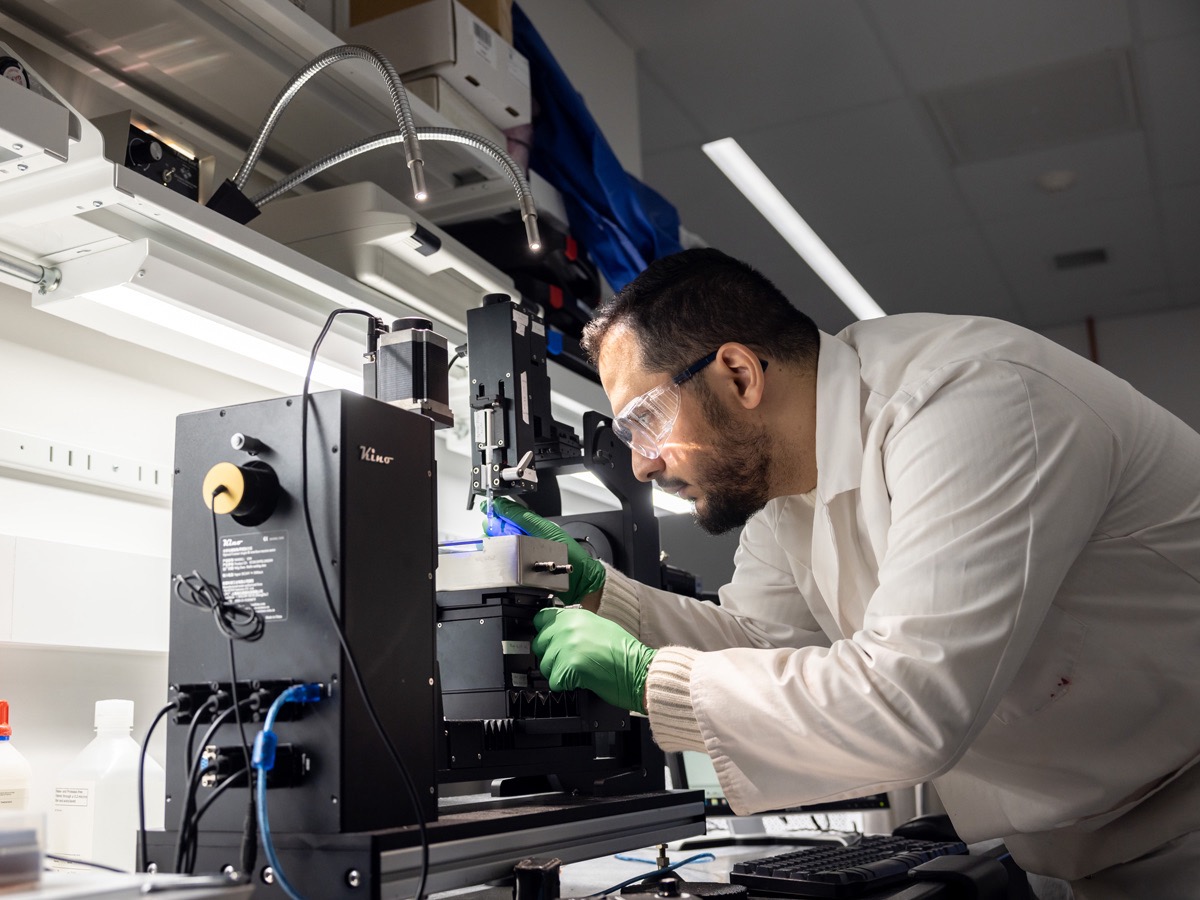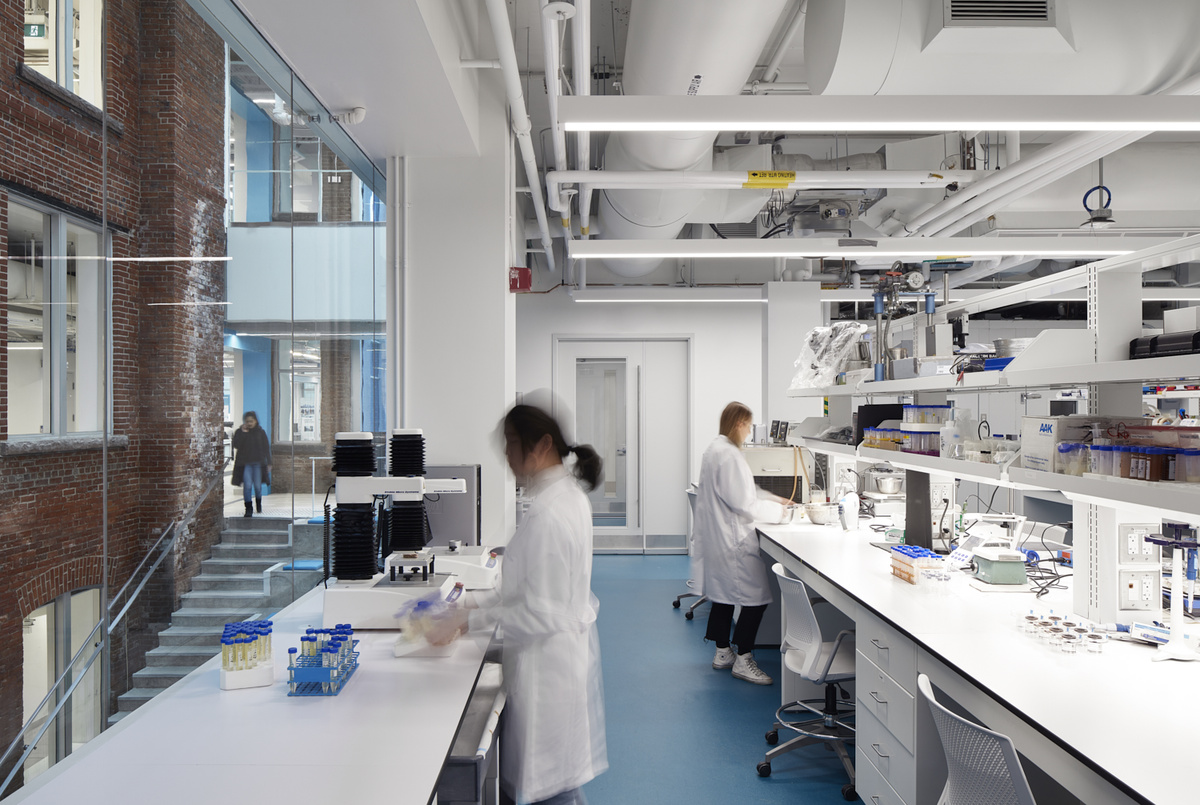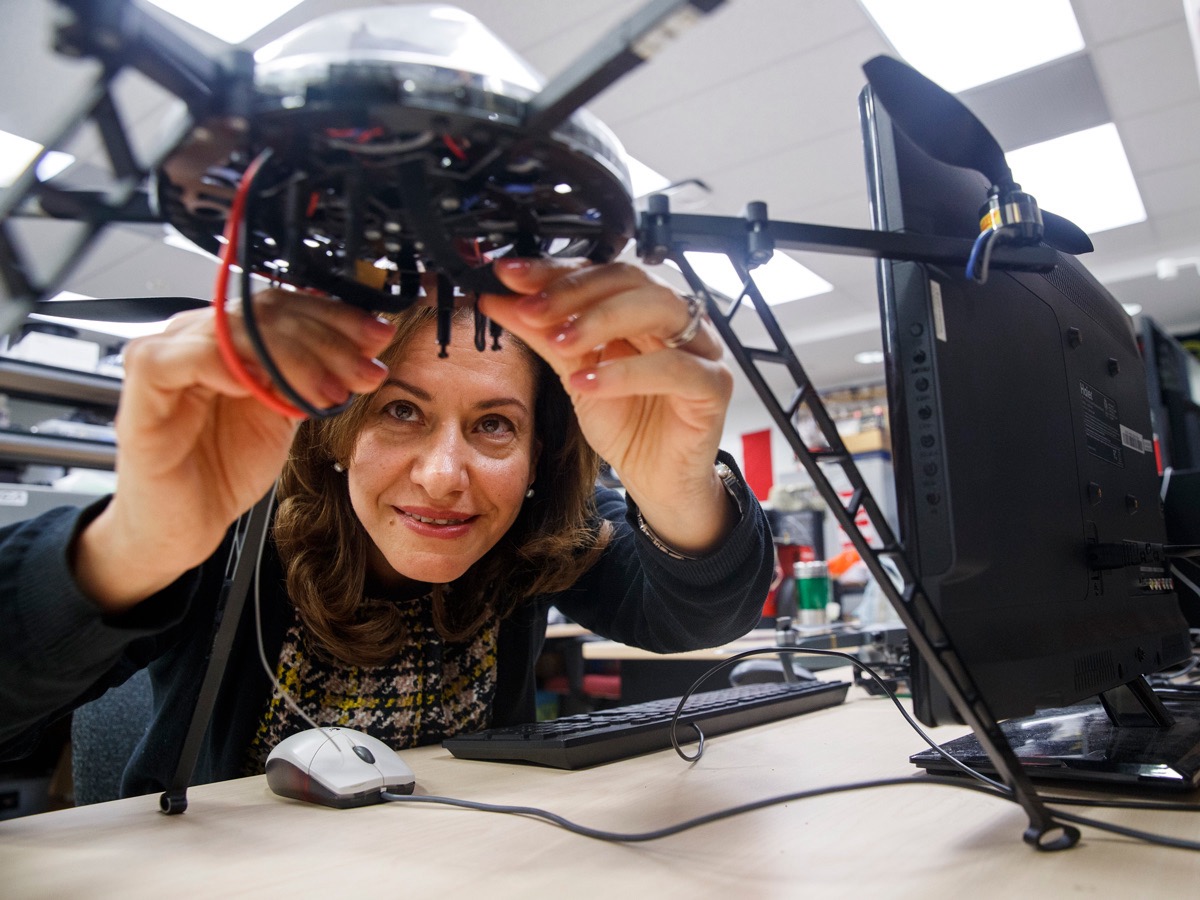Research Themes
The Faculty of Science conducts research across six identified themes: Biomedical Innovations, Novel Materials for Health, the Environment and Society, Complex Systems, Advanced Computing, Natural and Urban Ecosystems and STEM Education Research. We explore both fundamental science and directly translatable applications. Many of our researchers partner with government, industry and other experts to create innovative and impactful solutions to meet the latest needs of our complex and ever-changing world.
The Faculty of Science has a rapidly growing research ecosystem focused on understanding, characterizing, and applying biomedical principles for developing biomedical solutions. Pursuing both theoretical and applied topics, our researchers conduct collaborative research with clinicians and other researchers at premier hospitals and research centers across Toronto.
Research areas:
- Biomedical Imaging and Contrast Agent Development
- Biomedical Therapy Modalities
- Biomarker Discovery/Development
- Synthetic and Medicinal Chemistry
- Molecular and Cellular Biology
- Microbiology

Novel materials, new designs and applications for existing materials are continually being developed at TMU. They are intended to improve the performance of existing technologies or are used under controlled conditions in industrial processes to make everyday objects. These materials are also incorporated in products which find their way into daily use to benefit our health, the environment and society.
Research areas:
- Nanotechnology
- Food Science
- Solar Cell Technology
- Natural Products

Complex Systems is a field of science that investigates how relationships between a system's parts give rise to its collective behaviours and how the system interacts and forms relationships with its environment. Complex Systems’ interdisciplinarity draws on disciplinary perspectives and integrates their insights by constructing a more comprehensive perspective.
Research areas:
- Big Data, Data Analytics
- Financial Mathematics
- Graph Theory / Complex Networks
- Mathematical & Computational Biology
- Public Safety
- Disease & Public Health Modeling

Advanced computing discovers emerging technologies' potential for the greater good. New computing hardware and software are developed at TMU, including innovations in designing the full spectrum of hardware from robots to novel computers and peripheral equipment.
Research areas:
- Machine Learning & Applied AI
- Cybersecurity / Cryptography / Data Privacy
- Blockchain Technologies
- Wireless Networks
- Robotics
- Internet of Things
- Cloud Computing
- Software Engineering
- Computer Vision / Human-Computer Interaction
- Theoretical Computer Science

As climate change and sustainability are critical to the future of Canada and the world, our FOS faculty and research teams unearth the complex interrelationships in our natural and urban ecosystems with research projects in water management, pollution mitigation/green infrastructure, spatial/disease ecology, conservation and planetary health.
Research areas:
- Water Management
- Pollution Mitigation / Green Infrastructure
- Spatial / Disease Ecology
- Conservation
- Planetary Health

Science education has been a research area in the Faculty of Science since our inception. Expertise in Science Discipline-Based Education Research (DBER) and conceptual learning is a research area actively developed at FOS. A distinctive characteristic of DBER is the central role that the discipline has in establishing the research priorities and ensuring it is relevant and focused on improving pedagogy’s importance in helping students develop disciplinary expertise.





